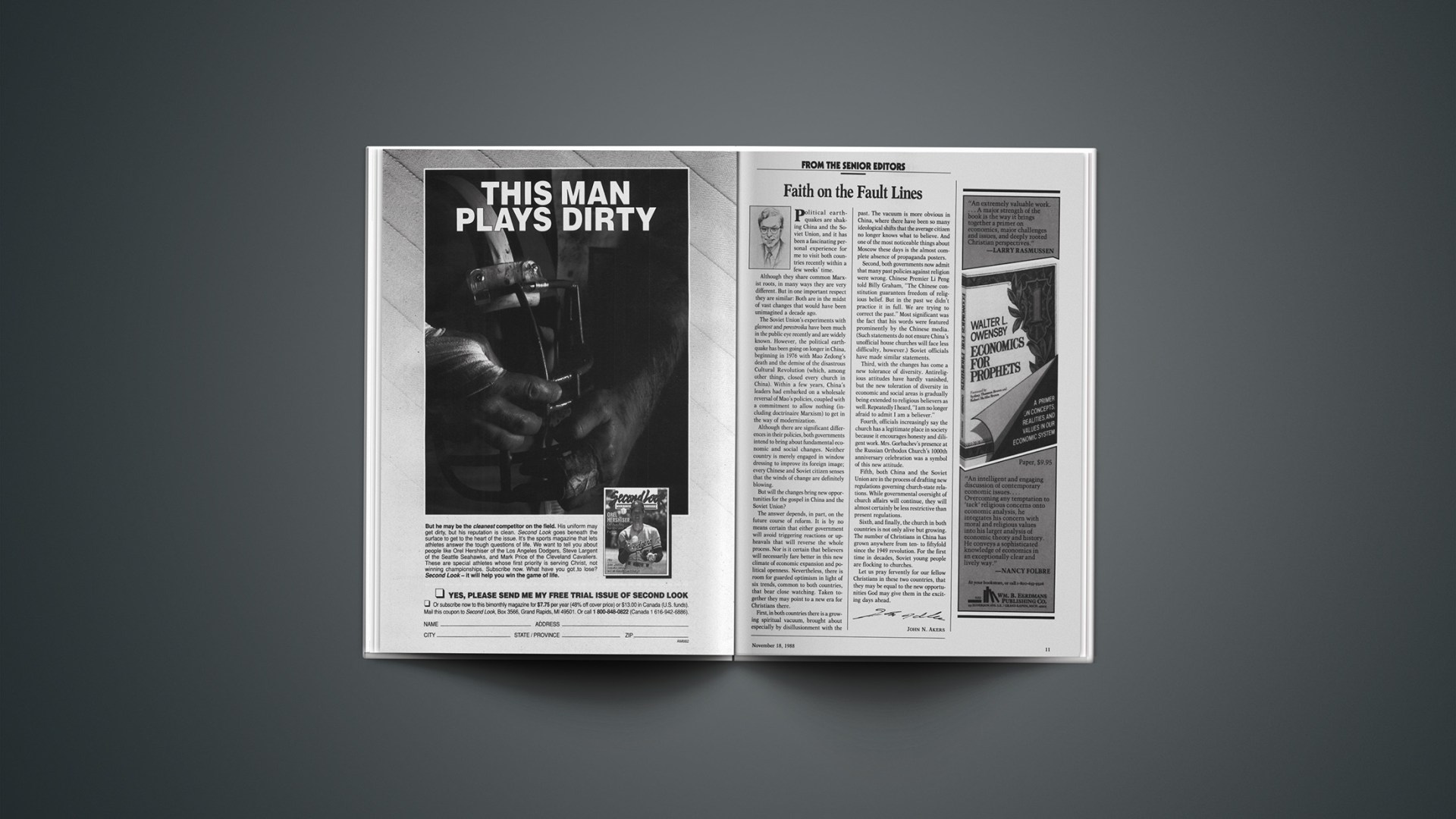Political earthquakes are shaking China and the Soviet Union, and it has been a fascinating personal experience for me to visit both countries recently within a few weeks’ time.
Although they share common Marxist roots, in many ways they are very different. But in one important respect they are similar: Both are in the midst of vast changes that would have been unimagined a decade ago.
The Soviet Union’s experiments with glasnost and perestroika have been much in the public eye recently and are widely known. However, the political earthquake has been going on longer in China, beginning in 1976 with Mao Zedong’s death and the demise of the disastrous Cultural Revolution (which, among other things, closed every church in China). Within a few years, China’s leaders had embarked on a wholesale reversal of Mao’s policies, coupled with a commitment to allow nothing (including doctrinaire Marxism) to get in the way of modernization.
Although there are significant differences in their policies, both governments intend to bring about fundamental economic and social changes. Neither country is merely engaged in window dressing to improve its foreign image; every Chinese and Soviet citizen senses that the winds of change are definitely blowing.
But will the changes bring new opportunities for the gospel in China and the Soviet Union?
The answer depends, in part, on the future course of reform. It is by no means certain that either government will avoid triggering reactions or upheavals that will reverse the whole process. Nor is it certain that believers will necessarily fare better in this new climate of economic expansion and political openness. Nevertheless, there is room for guarded optimism in light of six trends, common to both countries, that bear close watching. Taken together they may point to a new era for Christians there.
First, in both countries there is a growing spiritual vacuum, brought about especially by disillusionment with the past. The vacuum is more obvious in China, where there have been so many ideological shifts that the average citizen no longer knows what to believe. And one of the most noticeable things about Moscow these days is the almost complete absence of propaganda posters.
Second, both governments now admit that many past policies against religion were wrong. Chinese Premier Li Peng told Billy Graham, “The Chinese constitution guarantees freedom of religious belief. But in the past we didn’t practice it in full. We are trying to correct the past.” Most significant was the fact that his words were featured prominently by the Chinese media. (Such statements do not ensure China’s unofficial house churches will face less difficulty, however.) Soviet officials have made similar statements.
Third, with the changes has come a new tolerance of diversity. Antireligious attitudes have hardly vanished, but the new toleration of diversity in economic and social areas is gradually being extended to religious believers as well. Repeatedly I heard, “I am no longer afraid to admit I am a believer.”
Fourth, officials increasingly say the church has a legitimate place in society because it encourages honesty and diligent work. Mrs. Gorbachev’s presence at the Russian Orthodox Church’s 1000th anniversary celebration was a symbol of this new attitude.
Fifth, both China and the Soviet Union are in the process of drafting new regulations governing church-state relations. While governmental oversight of church affairs will continue, they will almost certainly be less restrictive than present regulations.
Sixth, and finally, the church in both countries is not only alive but growing. The number of Christians in China has grown anywhere from ten to fiftyfold since the 1949 revolution. For the first time in decades, Soviet young people are flocking to churches.
Let us pray fervently for our fellow Christians in these two countries, that they may be equal to the new opportunities God may give them in the exciting days ahead.
JOHN N. AKERS










